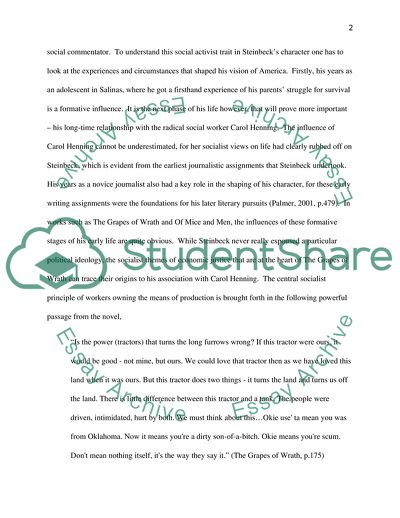Cite this document
(John Steinbeck: His Life and His Works Research Paper - 1, n.d.)
John Steinbeck: His Life and His Works Research Paper - 1. https://studentshare.org/biographies/1731505-english
John Steinbeck: His Life and His Works Research Paper - 1. https://studentshare.org/biographies/1731505-english
(John Steinbeck: His Life and His Works Research Paper - 1)
John Steinbeck: His Life and His Works Research Paper - 1. https://studentshare.org/biographies/1731505-english.
John Steinbeck: His Life and His Works Research Paper - 1. https://studentshare.org/biographies/1731505-english.
“John Steinbeck: His Life and His Works Research Paper - 1”. https://studentshare.org/biographies/1731505-english.


